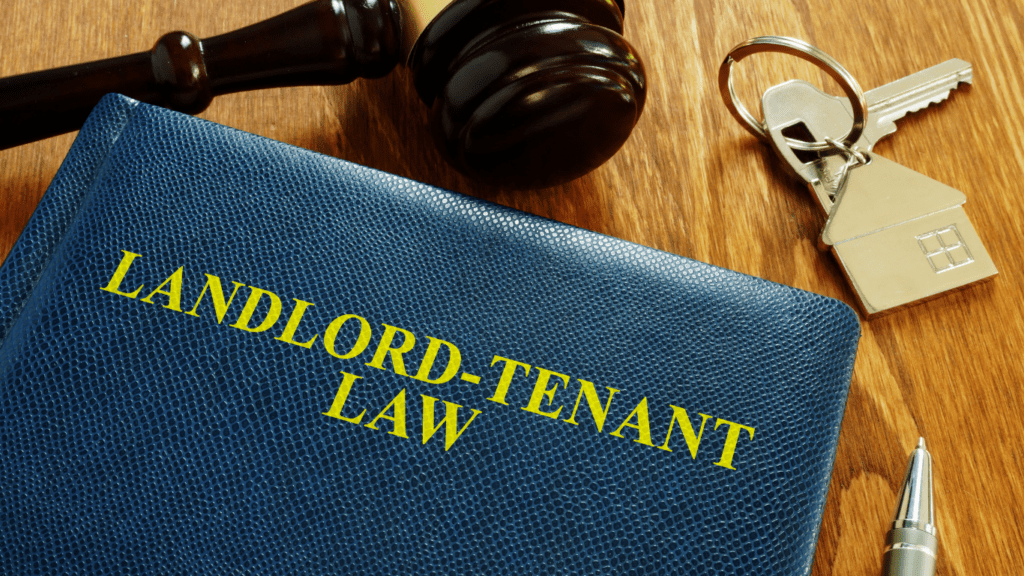Understanding Landlord-Tenant Laws
Knowing landlord-tenant laws reduces risks of disputes and ensures compliance with legal obligations. These laws cover areas like leases, eviction procedures, and tenant protections.
Key Federal Laws Affecting Landlords
Federal laws set baseline protections that apply to landlords nationwide. The Fair Housing Act prohibits discrimination based on race, religion, sex, familial status, national origin, or disability. For example, it’s illegal to refuse tenancy or set different rental terms for these reasons. The Americans with Disabilities Act (ADA) mandates reasonable accommodations for rental properties open to the public, such as wheelchair ramps.
The Fair Credit Reporting Act (FCRA) governs how tenant credit reports are used. Landlords must notify applicants in writing if adverse action is taken due to their credit history. Violations of federal laws can result in fines or legal action.
State-Specific Landlord Requirements
Each state sets unique landlord obligations, often covering security deposit limits, required disclosures, and eviction frameworks. For instance, California caps security deposits at two months’ rent for unfurnished units, while Texas does not impose a statewide limit. States like New York require written lease agreements when renting residential units for terms longer than 12 months, whereas others, such as Mississippi, accept oral agreements.
Eviction procedures vary widely. In Florida, landlords must give tenants three days’ notice to pay overdue rent before starting eviction, whereas in Washington, tenants receive 14 days. I always recommend reviewing relevant state statutes or consulting a local attorney to ensure compliance.
Drafting A Lease Agreement
A well-drafted lease agreement protects both the landlord and tenant, serving as the foundation for a smooth rental relationship. Taking care to cover all crucial aspects ensures clarity and reduces potential disputes.
Essential Clauses To Include
- Rent Details
Specify the monthly rent, due date, acceptable payment methods, and late fee policies. For example, include whether payment is allowed via a check, online transfer, or another method. - Lease Term
State the lease duration, whether it’s a fixed-term (e.g., 12 months) or month-to-month agreement, and include start and end dates to minimize confusion. - Security Deposit
Clearly outline the deposit amount, acceptable use (e.g., damages), and return conditions per state laws. For instance, many states mandate deposit returns within a specific timeframe, like 30 days. - Maintenance Responsibilities
Define landlord and tenant responsibilities for repairs, maintenance, and reporting damages. Specify who handles lawn care, pest control, or appliance servicing. - Occupancy Limits
Set rules regarding the number of residents allowed and whether subletting or roommates are permitted. Include penalties for unauthorized occupants to avoid disputes. - Prohibited Activities
List illegal or banned activities, such as smoking, drug use, or excessive noise, to protect the property and comply with local laws.
- Vague Language
Ambiguity can lead to disputes. Use precise language for terms such as “normal wear and tear” or “quiet Enjoyment.” Clarity eliminates misinterpretations. - Missing Mandatory Disclosures
Requirements like lead paint disclosures for properties built before 1978 or details about mold risks vary by state. Omitting these can lead to fines or lawsuits. - Overlooking State Laws
Failing to comply with state-specific regulations on deposits, fees, or lease modifications increases legal exposure. For example, some states limit late fees to a percentage of monthly rent. - Neglecting Customization
Using generic lease templates without tailoring them to the property or local laws reduces enforceability. Address unique property features or needs, like yard access or shared utilities. - Inadequate Tenant Rules
Leaving out rules for areas like pet policies or parking can create conflicts. For example, if pets aren’t allowed, specify this upfront to avoid disputes.
By drafting a comprehensive lease agreement, I can protect my property, ensure a positive tenant experience, and minimize legal risks.
Tenant Screening And Fair Housing Compliance

Effective tenant screening and strict compliance with fair housing laws protect investments and reduce liability. Detailed knowledge of screening practices and anti-discrimination rules ensures smooth and legal property management.
Best Practices For Screening Tenants
I conduct tenant screening by verifying applications using:
- background checks
- credit reports
- rental history
These help assess financial stability, previous rental conduct, and any red flags, such as eviction records or unpaid debts.
I always inform applicants in writing if adverse decisions are based on credit reports, adhering to the Fair Credit Reporting Act (FCRA). When requesting personal information like Social Security numbers, I ensure security measures are in place to protect sensitive data from misuse.
I establish consistent screening criteria, such as income requirements, credit score thresholds, and acceptable backgrounds, to minimize bias. For example, I might require tenants to have an income 3x the monthly rent and a credit score above 620.
Avoiding Discrimination Issues
I apply the Fair Housing Act, which prohibits discrimination based on race, color, religion, sex, disability, familial status, or national origin, in all tenant interactions. To remain compliant, I avoid asking illegal application questions, such as those about marital status or family plans.
When reviewing applications, I use objective data and written screening standards to avoid personal judgments or assumptions that could appear discriminatory. For example, I ensure ADA compliance by making reasonable accommodations, like allowing service animals, even in no-pet properties.
I document all applicant communications and decisions to maintain transparency and provide proof of compliance in case of disputes.
Security Deposits And Rental Payments
Security deposits and rental payments involve specific legal obligations that landlords must follow to avoid disputes and liabilities. Knowing the rules governing these matters protects both the landlord and the tenant.
Rules Regarding Security Deposit Handling
State laws regulate how I must handle security deposits. For example, some states require deposits to be stored in separate interest-bearing accounts, while others don’t. I ensure compliance by reviewing my state’s requirements and informing tenants about deposit procedures.
Refund timelines and deductions depend on local laws. If deductions are needed for damages or unpaid rent, I provide detailed written documentation with receipts or estimates to justify the amounts withheld. Failing to adhere to legal timelines or offering insufficient explanations can lead to disputes or penalties.
The maximum amount of a security deposit often varies by state. For instance, California limits deposits to two months’ rent for unfurnished units, but Colorado enforces no cap. I always check my local statutes to confirm what’s permissible.
Managing Late Payments Legally
Handling late rental payments requires both consistency and adherence to lease terms. My lease defines specific due dates, grace periods, and late fees so tenants know the consequences of missed payments.
Local laws often set limits on late fees. For example, some jurisdictions cap fees at 5% of the monthly rent. I ensure my charges comply with these legal caps to avoid disputes or claims of unfair practices.
Initiating legal action for nonpayment must follow state-specific procedures. I typically issue a written notice for overdue rent, allowing a set timeframe to pay before filing for eviction. This approach reinforces compliance with local guidelines and prevents unlawful practices.
Handling Repairs And Maintenance
Maintaining property in a safe and habitable condition is a critical legal duty for landlords. Proper management of repairs not only avoids legal disputes but also fosters solid tenant relationships.
Legal Responsibilities For Landlords
Landlords must ensure rental units meet local health and safety standards. These obligations typically include addressing structural damages, plumbing issues, electrical hazards, and pest infestations. For example, in most states, broken heating systems during winter must be repaired promptly to comply with habitability laws. Delayed responses to critical repairs can result in tenant rent withholding, legal action, or government fines, depending on state laws.
Routine maintenance is equally important. Tasks like inspecting smoke detectors, ensuring compliance with local building codes, and maintaining shared areas, such as hallways and parking lots, often fall under the landlord’s responsibilities. Being familiar with local housing codes prevents legal issues and promotes long-term property longevity.
Documentation And Communication Tips
Tracking repair requests, actions taken, and associated costs ensures proper documentation. I recommend maintaining a log of repair history and tenant communications. For example, if a tenant requests a plumbing repair, documenting the request date, the contactor’s response, and repair completion protects against future disputes.
Clear, written communication prevents misunderstandings. Using email or tenant portals for repair requests ensures records are accessible. Provide tenants with timelines for non-urgent repairs and confirm completion once work is finished. If delays occur, notify tenants with updated schedules to demonstrate proactive property management and adherence to laws.


 Leila Hamilton played a key role in shaping Mode Key Homes, contributing her expertise in real estate trends and sustainable housing. Her dedication to delivering insightful content ensures that homeowners, investors, and industry professionals stay informed about market developments and innovative property solutions.
Leila Hamilton played a key role in shaping Mode Key Homes, contributing her expertise in real estate trends and sustainable housing. Her dedication to delivering insightful content ensures that homeowners, investors, and industry professionals stay informed about market developments and innovative property solutions.